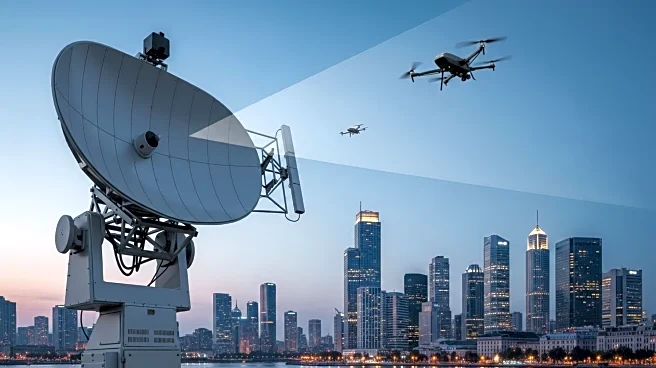What's Happening?
European countries are enhancing security protocols following a surge in illegal drone incursions, particularly over military installations and critical infrastructure. Recent incidents include the temporary closure of Munich Airport due to drone sightings, affecting thousands of passengers. European officials suspect Russia may be behind these incursions, potentially testing NATO's air defenses or provoking reactions. In response, Germany is tightening security laws to expedite drone detection and interception, while other European nations are considering similar measures to protect their airspace.
Why It's Important?
The increase in drone incursions poses significant security challenges for European nations, highlighting vulnerabilities in airspace protection and the need for advanced counter-drone technologies. These incidents could strain relations between Europe and Russia, especially if evidence emerges linking the incursions to Russian activities. The situation underscores the importance of international cooperation in addressing aerial threats and maintaining regional security. The economic impact is also notable, as disruptions to air travel and infrastructure can have broader implications for commerce and public safety.
What's Next?
European countries are likely to continue strengthening their drone defense capabilities, potentially leading to increased military spending and collaboration among NATO members. The European Union may consider implementing a 'drone wall' along its eastern borders to prevent further incursions. Diplomatic efforts may also intensify to address the underlying geopolitical tensions and prevent escalation. The development of new technologies and strategies to counter drone threats will be crucial in ensuring the security of European airspace.











